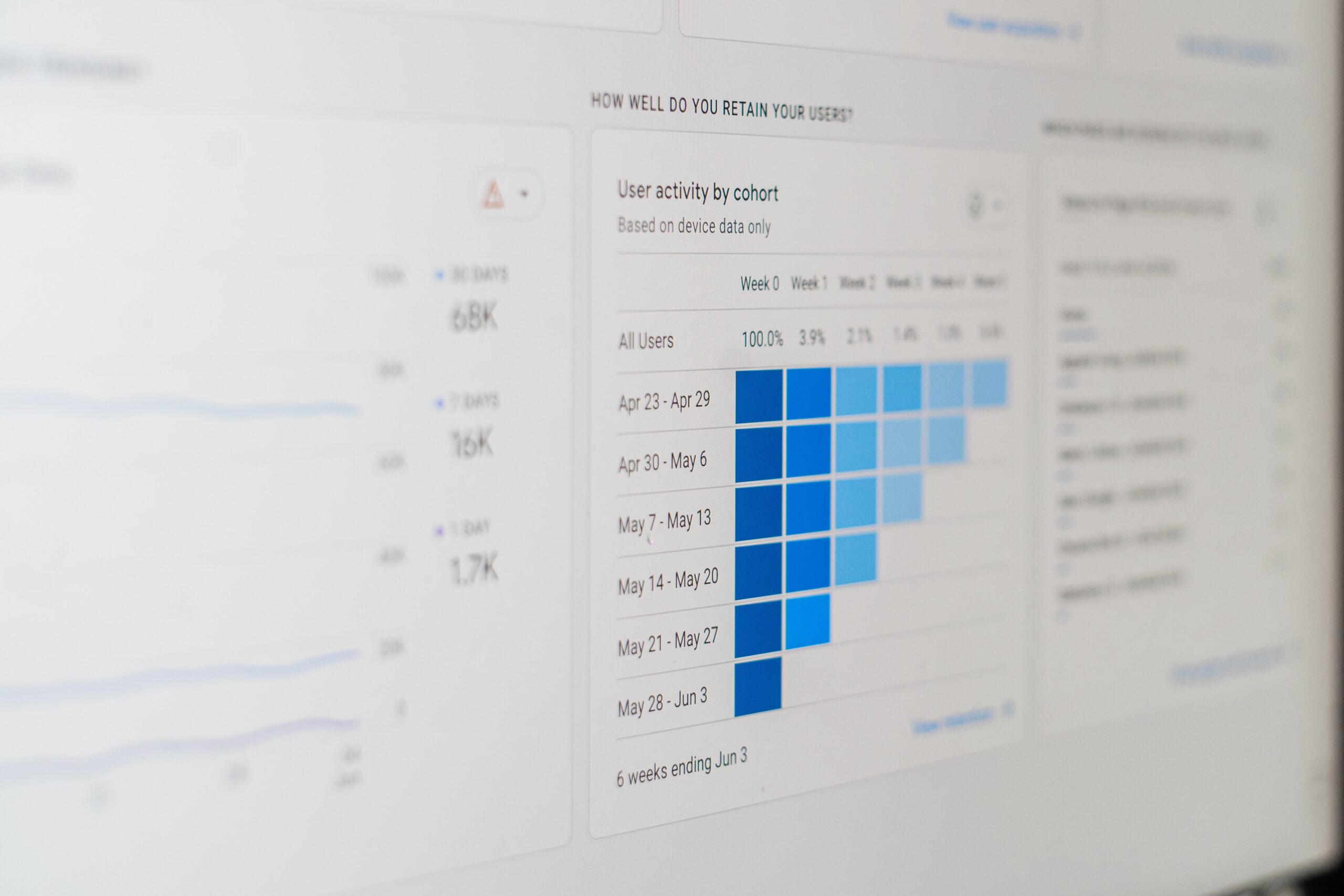Are you looking to improve your personal injury firm’s SEO ranking and increase your visibility on search engines? Look no further! We have some valuable insights and strategies that will help you optimize your website and get noticed by potential clients. With the right search engine optimization techniques, you can attract more organic traffic, enhance your online presence, and ultimately grow your business. Whether you’re new to SEO or already have some knowledge, these tips will take your firm’s online visibility to the next level. So let’s dive right in and start boosting your SEO ranking!

Choose relevant keywords
When it comes to improving your personal injury firm’s SEO ranking, one of the first steps you should take is choosing relevant keywords. These are the words or phrases that potential clients are likely to type into a search engine when they are looking for legal services. By targeting these keywords, you can increase your firm’s visibility and attract more organic traffic to your website.
Identify target keywords
To begin, you need to identify the keywords that are most relevant to your personal injury firm. Put yourself in the shoes of a potential client and think about the terms they would use to search for a lawyer. Consider specific areas of practice such as car accidents, medical malpractice, or workplace injuries. Take some time to brainstorm a list of keywords that are directly related to the services you offer.
Research search volume and competition
Once you have a list of potential keywords, it’s important to research their search volume and competition. Search volume refers to the number of times a particular keyword is searched for each month. Ideally, you want to target keywords that have a relatively high search volume, as this indicates that there is a demand for those terms.
Competition, on the other hand, refers to the number of other websites that are trying to rank for the same keywords. It’s crucial to strike a balance between search volume and competition. Look for keywords that have a decent search volume but don’t face too much competition. This will give you a better chance of ranking higher in search engine results.
Use long-tail keywords
When choosing keywords, don’t forget about long-tail keywords. These are longer, more specific phrases that are less competitive but can still attract valuable traffic. For example, instead of targeting “personal injury lawyer,” you could target “personal injury lawyer in [your city]” or “car accident lawyer in [your city].” By using long-tail keywords, you can narrow down your target audience and increase your chances of attracting clients who are specifically looking for the services you provide.
Create high-quality content
Creating high-quality content is essential for improving your personal injury firm’s SEO ranking. Search engines prioritize websites that offer valuable and informative content to users. By publishing helpful articles, optimizing meta tags and headers, and using keyword-rich anchor text in internal links, you can improve your website’s visibility and attract more organic traffic.
Publish helpful and informative articles
One of the best ways to improve your firm’s SEO ranking is by regularly publishing helpful and informative articles on your website. This not only demonstrates your expertise and positions you as a trusted authority in the field of personal injury law but also provides valuable content for potential clients. Make sure your articles are well-researched, well-written, and offer practical advice or insights that can help your audience.
Optimize meta tags and headers
Optimizing your website’s meta tags and headers is another important aspect of improving your SEO ranking. Meta tags are snippets of text that describe the content of a web page and appear in search engine results. By optimizing your meta tags with relevant keywords, you can improve your click-through rate and attract more organic traffic.
Headers, on the other hand, are the titles and subheadings within your web content. They help search engines understand the structure and hierarchy of your content. By using relevant keywords in your headers, you can improve your content’s visibility and make it easier for both search engines and users to navigate.
Use keyword-rich anchor text in internal links
Internal links are links that connect different pages within your website. In addition to helping users navigate your site, they also play a role in improving your SEO ranking. When creating internal links, use keyword-rich anchor text. This means using descriptive and relevant keywords for the text that is hyperlinked. By doing so, you can provide search engines with additional context and improve the visibility of your content.
Optimize website structure
Optimizing your website structure is essential for improving both the user experience and your SEO ranking. By ensuring mobile responsiveness, improving page loading speed, and optimizing your URL structure, you can create a user-friendly website that is favored by search engines.
Ensure mobile responsiveness
With more and more people accessing the internet through mobile devices, having a mobile-responsive website is crucial. Search engines prioritize mobile-friendly websites and often penalize those that aren’t optimized for mobile. Make sure your website is responsive and adjusts seamlessly to different screen sizes. This will not only improve your SEO ranking but also provide a better user experience for potential clients.
Improve page loading speed
Page loading speed is another important factor to consider when optimizing your website structure. Users expect websites to load quickly, and search engines take loading speed into consideration when ranking websites. Compress images, minify code, and optimize your website’s resources to improve its loading speed. This will not only enhance the user experience but also boost your SEO ranking.
Optimize URL structure
The structure of your website’s URLs can also impact its SEO ranking. Optimize your URL structure by using descriptive and keyword-rich URLs. Avoid using excessive amounts of numbers or special characters. Instead, use meaningful words that accurately describe the content of the page. This will not only make it easier for users to understand the URL but also provide search engines with valuable information about the page’s content.
Improve user experience
Creating a positive user experience is crucial for improving your personal injury firm’s SEO ranking. By ensuring easy navigation, making content scannable with headings and bulleted lists, and optimizing images and videos, you can provide a seamless and user-friendly experience for potential clients.
Ensure easy navigation
Smooth and intuitive navigation is essential for keeping visitors engaged on your website. Make sure your website is easy to navigate, with clear and well-organized menus. Use descriptive labels for your navigation links and consider implementing breadcrumbs to help users understand their location within your site. By providing easy navigation, you can improve the user experience and increase the chances of conversion.
Make content scannable with headings and bulleted lists
When it comes to online content, most users prefer to scan rather than read every word. To make your content scannable, use headings and subheadings to break up long paragraphs. This allows users to quickly locate the information they are looking for. Additionally, use bulleted or numbered lists to highlight key points or steps. By structuring your content in this way, you can make it more engaging and accessible to users.
Optimize images and videos
Images and videos can enhance the user experience and make your content more visually appealing. However, it’s important to optimize them for SEO purposes. Use descriptive file names and alternative text (alt text) for your images to provide search engines with context. Compress your images to reduce file size and improve page loading speed. For videos, optimize the title, description, and tags to help search engines understand the content. By optimizing your media files, you can improve your SEO ranking and make your website more engaging.

Build high-quality backlinks
Building high-quality backlinks is an effective way to improve your personal injury firm’s SEO ranking. Backlinks are links from other websites to your own. When reputable websites link to your site, it signals to search engines that your content is valuable and trustworthy. There are several strategies you can implement to build high-quality backlinks.
Guest posting on relevant websites
Guest posting involves writing and contributing articles to other websites in your industry. Look for reputable websites and blogs that accept guest posts and offer valuable content to their audience. By guest posting, you can showcase your expertise and attract backlinks to your own website, improving your SEO ranking.
Request links from local business directories
Local business directories are online listings of businesses in specific geographical areas. Make sure your personal injury firm is listed in relevant directories and request links back to your website. This not only helps improve your SEO ranking but also makes it easier for potential clients to find and contact your firm.
Engage in influencer marketing
Influencer marketing involves partnering with influential individuals or organizations in your industry to promote your services. Identify influencers or organizations that have a strong online presence and are relevant to the field of personal injury law. Collaborate with them to create content, share articles, or participate in interviews. This can help you build valuable backlinks and increase your firm’s visibility and credibility.
Utilize local SEO strategies
Local SEO strategies are essential for personal injury firms that primarily serve clients in specific geographical areas. By claiming and optimizing your Google My Business listing, optimizing your website for local keywords, and ensuring consistent NAP (name, address, phone number) information across online directories, you can improve your firm’s visibility in local search results.
Claim and optimize Google My Business listing
Google My Business is a free tool that allows you to manage your firm’s online presence across Google, including search and maps. Claim your Google My Business listing and ensure that all the information is accurate and up to date. Optimize your listing by adding relevant keywords, uploading photos, and encouraging satisfied clients to leave reviews. This will help improve your firm’s local SEO ranking and make it more visible to potential clients in your area.
Optimize website for local keywords
Optimizing your website for local keywords is another important aspect of local SEO. Include location-specific keywords throughout your website content, meta tags, headers, and URLs. This will help search engines understand your firm’s geographic relevance and improve your visibility in local search results. For example, instead of targeting “personal injury lawyer,” you could target “personal injury lawyer in [your city].”
Ensure consistent NAP information across online directories
Consistency is key when it comes to NAP information. NAP stands for name, address, and phone number – the contact information for your personal injury firm. Make sure this information is consistent and accurate across all online directories, including your website, Google My Business listing, local business directories, and social media profiles. This helps search engines understand your firm’s location and credibility, improving your local SEO ranking.

Leverage social media platforms
Social media platforms can play a significant role in improving your personal injury firm’s SEO ranking. By creating and sharing engaging content, interacting with followers and responding to comments, and optimizing your profiles with keywords and links, you can increase your online visibility and attract more traffic to your website.
Create and share engaging content
Social media platforms provide an opportunity to showcase your expertise and engage with potential clients. Create and share informative and engaging content that is relevant to your audience. This can include blog posts, articles, videos, infographics, or tips. By offering valuable content, you can attract followers, increase engagement, and drive traffic to your website.
Interact with followers and respond to comments
Engaging with your social media followers is crucial for building relationships and establishing trust. Respond to comments, messages, and inquiries in a timely and helpful manner. Encourage interactions by asking questions, conducting polls, or hosting live Q&A sessions. By actively engaging with your audience, you can build a loyal following and improve your firm’s online presence.
Optimize profiles with keywords and links
Optimize your social media profiles with relevant keywords and links to your website. Use targeted keywords in your profile descriptions, headings, and captions. Include a link to your website in your bio or profile section. This not only helps search engines understand the relevance of your profiles but also provides potential clients with an easy way to visit your website and learn more about your firm.
Monitor and analyze SEO performance
Monitoring and analyzing your SEO performance is crucial for understanding what is working and what needs improvement. By tracking keyword rankings, using Google Analytics to analyze website traffic, and monitoring user behavior on-site, you can make data-driven decisions and continuously optimize your SEO strategies.
Track keyword rankings
Regularly track the rankings of your targeted keywords to see how well your website is performing in search engine results. There are various tools available that can help you monitor your rankings. Pay attention to any changes and analyze the impact of your SEO efforts. Adjust your strategies as needed to improve your rankings and visibility.
Use Google Analytics to analyze website traffic
Google Analytics is a powerful tool that provides valuable insights into your website traffic. It can help you understand where your traffic is coming from, which pages are performing well, and how users are interacting with your site. Analyze the data provided by Google Analytics to identify areas for improvement and optimize your SEO strategies accordingly.
Monitor user behavior on-site
Understanding how users behave on your website is essential for improving the user experience and optimizing your SEO strategies. Monitor metrics such as bounce rate, time on page, and conversion rate. Identify any issues that may be causing users to leave your site or not convert. By addressing these issues, you can improve the user experience, increase engagement, and ultimately improve your SEO ranking.

Stay updated with SEO trends
SEO is an ever-evolving field, and it’s important to stay updated with the latest trends and best practices. By following industry blogs and resources, attending SEO conferences and webinars, and adapting your strategies to algorithm updates, you can ensure that your personal injury firm’s SEO efforts remain effective and up to date.
Follow industry blogs and resources
Stay informed about the latest SEO trends and strategies by following industry blogs and resources. There are many reputable websites and blogs that provide valuable insights and updates on SEO. Keep up with the latest news, case studies, and best practices in order to continuously optimize your firm’s SEO efforts.
Attend SEO conferences and webinars
Attending SEO conferences and webinars is a great way to learn from experts in the field and stay updated with the latest developments. These events offer opportunities to network with other professionals, learn new strategies, and gain insights into industry trends. By attending these events, you can gain valuable knowledge that you can apply to improve your firm’s SEO ranking.
Adapt strategies to algorithm updates
Search engine algorithms are constantly being updated and refined. It’s important to stay informed about these updates and adapt your SEO strategies accordingly. Keep an eye on search engine announcements and industry news to ensure that your firm’s SEO efforts align with the latest algorithm changes. By staying updated, you can maintain a competitive edge and continue to improve your SEO ranking.
Consider hiring an SEO expert
If you find that improving your personal injury firm’s SEO ranking is a challenging task, consider hiring an SEO expert. These professionals specialize in optimizing websites for search engines and can help take your SEO efforts to the next level. When hiring an SEO expert, there are a few factors to consider.
Evaluate their experience and expertise in personal injury SEO
When hiring an SEO expert, evaluate their experience and expertise in the field of personal injury SEO. Look for professionals who have a track record of success in improving the SEO rankings of personal injury firms specifically. Ask for case studies or examples of their work to assess their capabilities and ensure they have the necessary knowledge to help your firm rank better.
Review their track record and client testimonials
Before finalizing your decision, review the SEO expert’s track record and client testimonials. Look for reviews or testimonials from other personal injury firms they have worked with and gauge their level of satisfaction. A reputable SEO expert should have positive feedback and a proven track record of delivering results.
Discuss goals and timeline for improvement
When engaging with an SEO expert, have a clear discussion about your firm’s goals and the expected timeline for improvement. SEO is a long-term strategy, and it takes time to see significant results. A competent SEO expert should be able to provide you with a realistic timeline and set achievable goals based on your firm’s specific circumstances.
Improving your personal injury firm’s SEO ranking requires a combination of keyword research, high-quality content creation, website optimization, user experience enhancement, backlink building, local SEO strategies, social media utilization, performance monitoring, staying updated with SEO trends, and considering hiring an SEO expert. By implementing these strategies and staying committed to continuously improving your SEO efforts, you can increase your online visibility, attract more potential clients, and ultimately grow your personal injury firm.


